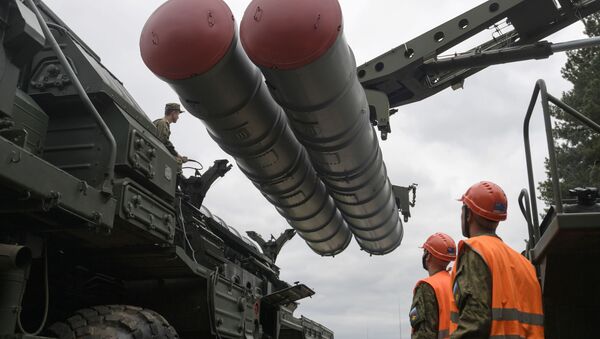Turkey's decision to buy the S-400s was always about the effective use of economic resources, rather than any desire to confront its Western allies, Jana Jabbour, a Paris-based professor of political science and expert on Turkey told Sputnik.
"The AKP has always stated that the acquisition of S-400 missiles from Russia is by no means a symbol of any 'confrontation' with NATO and the US, but that this decision is simply driven by financial rationality, given that the offer by Russia was more competitive than the offer by the US," Dr. Jabbour explained, pointing to favourable financing and the overall $2.5 billion cost of the S-400s compared to the US's $3.5 billion offer for Patriot PAC-3 defences.
Earlier this week, AKP spokesman Omer Celik said that in addition to Turkish territory, Ankara's new S-400s would serve to protect the European Union and NATO state borders from enemy strikes.
"That being said, the EU and NATO are unlikely to positively welcome Turkey's statement, as they view in a negative light Turkey's rapprochement vis-à-vis Moscow. Western powers believe that under the leadership of Erdogan, Turkey has been drifting away from Europe and the West, and has been challenging the West by engaging in good relations with Russia," Dr. Jabbour said.
Ultimately, the academic noted that Ankara, "as a rising power," has been deliberately engaged in a policy of "autonomisation on the world stage – and a policy of diversification of its partners and foreign relations."
Washington has lobbied intensely to get Ankara to pull out of its multi-billion dollar S-400 deal with Moscow, promising to sell Turkey its Patriot air defence batteries instead and threatening to halt the delivery of the F-35, a fifth-generation stealth fighter project into which Turkey has poured nearly $1 billion. NATO officials and aviation experts have expressed fears that secret F-35 technology would be compromised should Turkey go forward with the delivery of the S-400. The Turkish military expects the first of its S-400 systems to be delivered and installed by October.


